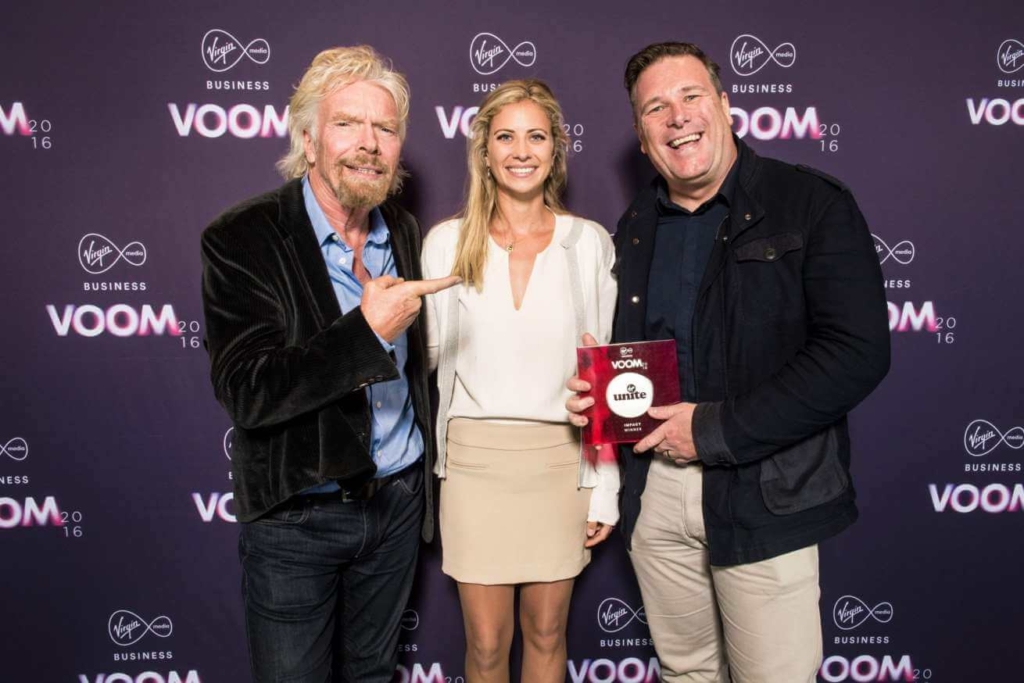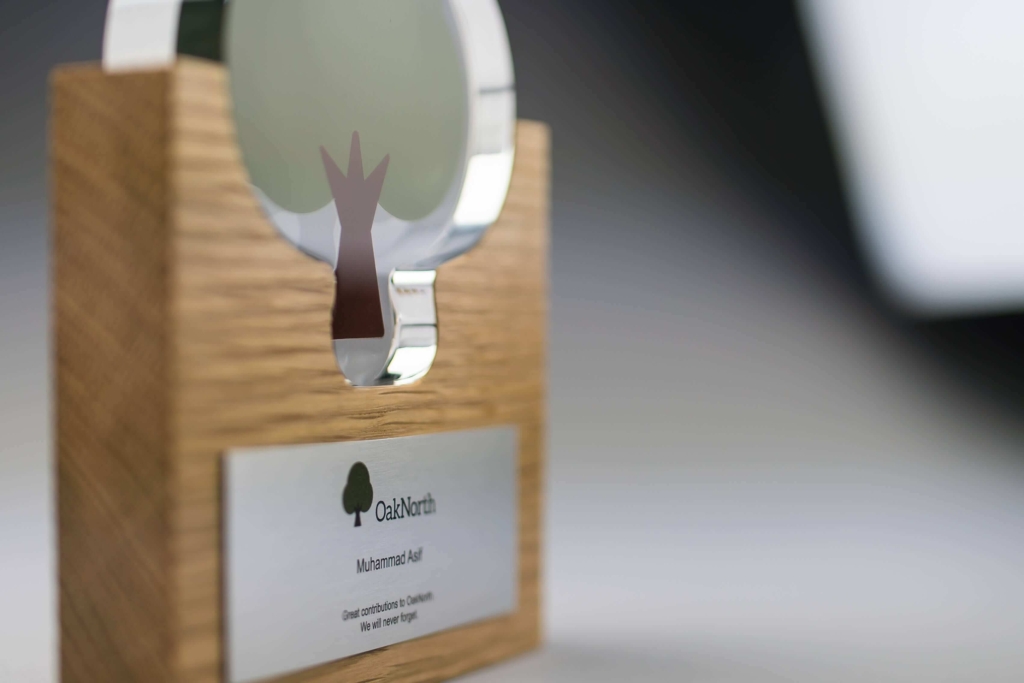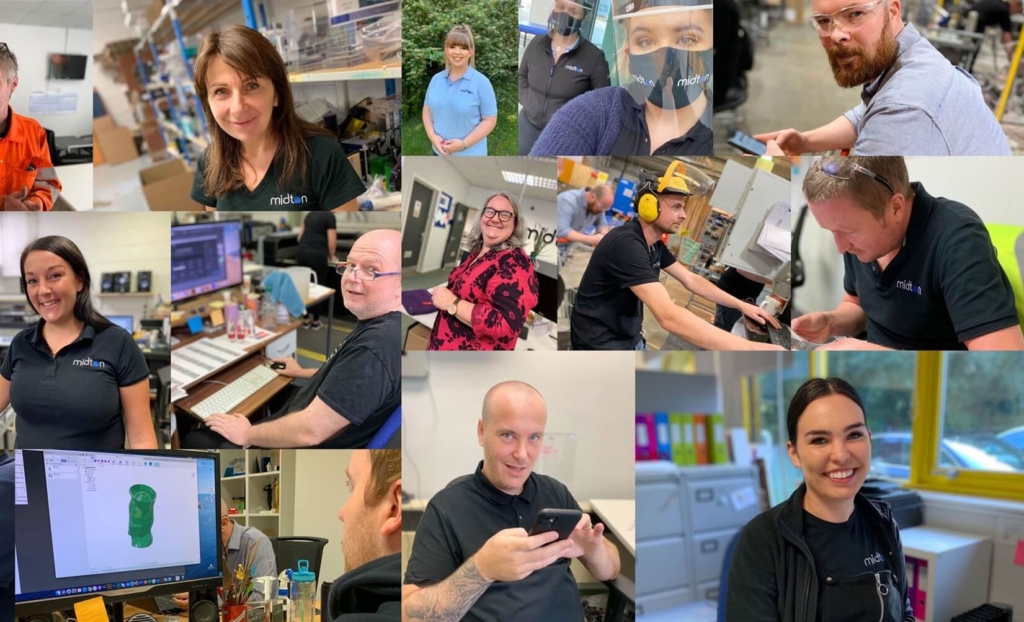Employee Recognitions in the Modern Age
Table of Contents
Why it pays to recognise and reward your employees

Here at midton, we provide countless awards each year for businesses keen to recognise their employees’ achievements. Some companies come to us with a full appreciation of the importance of employee recognitions and others are only starting to understand the potential benefits recognitions can bring to their business. Taking the time and effort to recognise employees is a vital part of managing and maintaining a modern business and, with this blog, we’d like to give you a few reasons why it’s important to invest in employee awards and recognitions.
Recognised employees = Happier employees
Intuitively, it makes sense that recognising employees’ efforts, loyalty, and achievements makes them happier in their job. This much seems obvious, but it’s something many managers and bosses forget, as some management styles favour discipline and enforcing order over positivity and praise. However, several studies have been carried out that prove employee recognitions ensure employees are significantly happier and therefore much more engaged in their job.
David Sturt, of O.C. Tanner Co., wrote in Harvard Business Review that his company carried out a study on close to 1,000 employees from several large businesses and discovered that 70% of employees whose efforts were recognised by management where happy in their jobs. While only 39% of employees who didn’t receive recognition where happy in their jobs. This confirms the intuition that recognising an employee’s performance ensures they are happier in their job. The benefits of making employees happy are manifold as it improves performance, loyalty, and work-life balance (as people who are happy at work bring that happiness home).
Recognitions aren’t just a one off
We hope most readers are convinced that it’s important to keep employees happy. It’s not just a nice way to manage people: it also makes a lot of business sense. However, if you think that a one-off awards ceremony will suffice, you may be disappointed, as O.C. Tanner Co.’s study found that it was import to refresh recognitions regularly. In the study, they found that 80% of employees who had been recognised within the last month felt fulfilled in their job and that only 42% of employees felt fulfilled by their job if it had been over two years since their employees had officially recognised their efforts or achievements.

Greater recognition = Greater trust
It’s also intuitive that bosses and managers who recognise employees are much more likely to have a positive relationship with their employees. Perhaps the best marker of a good boss-employee relationship is trust; and it’s not going too far to say that trust is an essential part of any healthy, functioning workforce.
It shouldn’t surprise you that 90% of employees who felt appreciated by their boss or manager have been shown to have high levels of trust in their superiors.
What does this mean for you? If you’re high up in a company and you’d like to forge a better relationship with your employees and encourage higher levels of trust and job satisfaction, then employee recognitions can provide you with a simple, positive method of achieving this.
Greater recognition = Smaller staff turnover
Staff turnover is an issue for most industries, but it can be extremely debilitating in highly skilled industries where the recruitment process is slow, arduous, and expensive. Rewarding staff above and beyond raising their salaries is the best way to improve staff retention rates. While it’s true that you are paying staff for their time and expertise, a good manager looks for ways to boost morale, improve job satisfaction, and ensure that the best employees aren’t looking for a new job in their spare time.
From Midton’s perspective, designing recognitions is a really satisfying, positive industry to be part of. Interest in our recognitions service increases, year on year, as more companies realise how useful it can be. Consider employee recognitions (awards ceremonies, certificates, weekly positive emails) as an investment in the relationship you have with your employees. A positive, functional professional relationship will help you get more out of your workforce and it will earn loyalty that significantly lowers the rate of staff turnover. Our advice is to integrate regular employee recognitions into your company culture; this isn’t a difficult process to implement and there are huge potential benefits. If you have any questions about our recognitions offering, please feel free to get in touch.


One Tree Planted: Ghana and Kenya
This month, we have reached a new tree-planting milestone. Since establishing our commitment to tree…

Is acrylic a sustainable material?
What is Sustainability? Meeting the needs of the present without compromising the ability…
